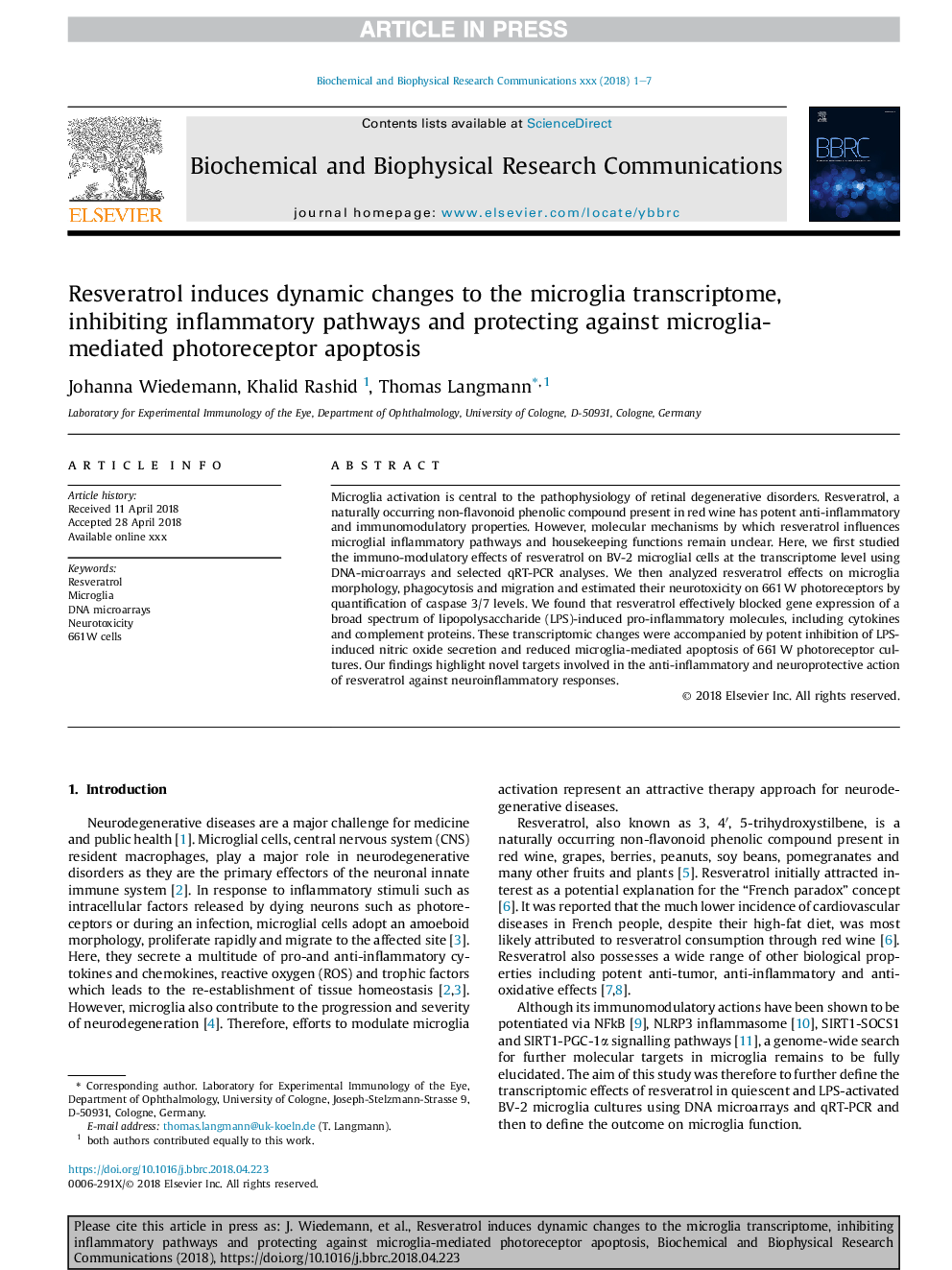| Article ID | Journal | Published Year | Pages | File Type |
|---|---|---|---|---|
| 8292681 | Biochemical and Biophysical Research Communications | 2018 | 7 Pages |
Abstract
Microglia activation is central to the pathophysiology of retinal degenerative disorders. Resveratrol, a naturally occurring non-flavonoid phenolic compound present in red wine has potent anti-inflammatory and immunomodulatory properties. However, molecular mechanisms by which resveratrol influences microglial inflammatory pathways and housekeeping functions remain unclear. Here, we first studied the immuno-modulatory effects of resveratrol on BV-2 microglial cells at the transcriptome level using DNA-microarrays and selected qRT-PCR analyses. We then analyzed resveratrol effects on microglia morphology, phagocytosis and migration and estimated their neurotoxicity on 661â¯W photoreceptors by quantification of caspase 3/7 levels. We found that resveratrol effectively blocked gene expression of a broad spectrum of lipopolysaccharide (LPS)-induced pro-inflammatory molecules, including cytokines and complement proteins. These transcriptomic changes were accompanied by potent inhibition of LPS-induced nitric oxide secretion and reduced microglia-mediated apoptosis of 661â¯W photoreceptor cultures. Our findings highlight novel targets involved in the anti-inflammatory and neuroprotective action of resveratrol against neuroinflammatory responses.
Related Topics
Life Sciences
Biochemistry, Genetics and Molecular Biology
Biochemistry
Authors
Johanna Wiedemann, Khalid Rashid, Thomas Langmann,
